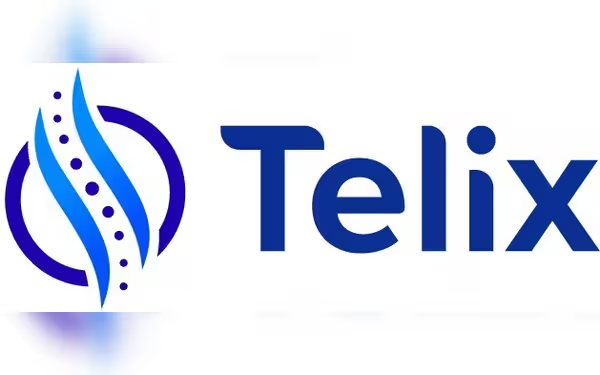Thursday, November 7, 2024 08:54 PM
First Patient Dosed in Phase II CA-NINE Trial for Kidney Cancer Detection
- First patient dosed in Phase II CA-NINE trial.
- TLX250-CDx aims to detect recurrent kidney cancer.
- Trial led by Professor Brian Shuch at UCLA.
 Image Credits: prnewswire_apac
Image Credits: prnewswire_apacTelix Pharmaceuticals announces first patient dosed in CA-NINE trial for detecting recurrent kidney cancer using TLX250-CDx.
In a significant advancement in the fight against kidney cancer, Telix Pharmaceuticals Limited has announced that the first patient has been dosed in a Phase II clinical trial named "CA-NINE." This trial is focused on the use of TLX250-CDx, a first-in-class investigational PET agent, specifically designed to detect recurrent clear cell renal cell carcinoma (ccRCC) after surgical intervention. The trial is being led by Professor Brian Shuch at the University of California, Los Angeles (UCLA), and aims to compare the effectiveness of TLX250-CDx PET/CT imaging against traditional imaging methods, such as contrast-enhanced CT scans, in a group of 91 patients who are at intermediate to high risk of ccRCC recurrence.
The "CA-NINE" trial is particularly important as it seeks to identify instances where ccRCC has returned, including cases of metastatic disease, which is when cancer spreads to other parts of the body. This trial is one of several ongoing or planned studies that could potentially lead to an expansion of the use of TLX250-CDx in clinical settings. Professor Shuch emphasized the importance of this research, stating, "Telix's ZIRCON trial demonstrated the accuracy of TLX250-CDx at diagnosing localized ccRCC. However, we know that many patients die of metastatic disease, where the cancer has spread." This highlights the urgent need for improved diagnostic tools in managing advanced kidney cancer.
Associate Professor Jeremie Calais, another key investigator in the trial, expressed optimism about the potential of TLX250-CDx, stating, "With TLX250-CDx, it is exciting that we can now characterize indeterminate renal masses with greater confidence." He noted that conventional imaging methods have limitations in staging patients, and there is hope that this new investigational agent will enhance patient outcomes by revealing sites of recurrent ccRCC that may not be visible through traditional imaging.
Dr. David N. Cade, Chief Medical Officer at Telix, shared his enthusiasm about the trial's progress, stating, "We are pleased that a first patient has been imaged in the CA-NINE trial, which supports potential label expansion for TLX250-CDx into recurrent, metastatic disease." This statement underscores the commitment of Telix Pharmaceuticals to address the unmet medical needs in kidney cancer treatment.
TLX250-CDx, also known as Zircaix® (89Zr-girentuximab), is being developed to non-invasively characterize renal masses as either ccRCC or non-ccRCC. The pivotal Phase III ZIRCON trial has already shown promising results, meeting all primary and secondary endpoints, including high sensitivity and specificity for ccRCC detection. This suggests that TLX250-CDx could provide a reliable method for diagnosing this type of kidney cancer.
As Telix continues to explore the potential of TLX250-CDx, the company is also committed to ensuring access to this investigational agent through expanded access programs in the U.S., named patient programs in Europe, and special access schemes in Australia. This approach reflects Telix's dedication to making innovative treatments available to patients who have limited options.
The initiation of the "CA-NINE" trial marks a promising step forward in the detection and management of recurrent kidney cancer. With ongoing research and development, there is hope that TLX250-CDx will not only improve diagnostic accuracy but also enhance treatment outcomes for patients battling this challenging disease. As the medical community continues to seek better solutions for kidney cancer, advancements like these could pave the way for more effective and timely interventions, ultimately saving lives.













